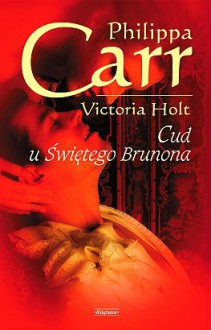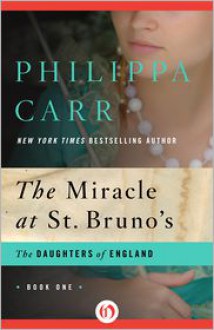 Jean Plaidy is responsible for my introduction to Tudor fiction. A long time ago someone suggested I read [b:Queen of This Realm: The Tudor Queens|159831|Queen of This Realm The Tudor Queens (Queens of England, #2)|Jean Plaidy|https://d.gr-assets.com/books/1325635056s/159831.jpg|2557006] and shortly after I started collecting Jean Plaidy books from various local used bookstores. I find Plaidy's works to be perfect for those times when I'm just looking for a quick read and they don't seem to play as fast and loose with history as other authors of Tudor fiction. I won't name said authors but anyone who knows me, knows exactly who I'm pointing fingers at. Since Philippa Carr is Jean Plaidy (and Victoria Holt), I figured this novel should be along the same lines as the others I have read. Unfortunately, this didn't really appear to be the case.
Jean Plaidy is responsible for my introduction to Tudor fiction. A long time ago someone suggested I read [b:Queen of This Realm: The Tudor Queens|159831|Queen of This Realm The Tudor Queens (Queens of England, #2)|Jean Plaidy|https://d.gr-assets.com/books/1325635056s/159831.jpg|2557006] and shortly after I started collecting Jean Plaidy books from various local used bookstores. I find Plaidy's works to be perfect for those times when I'm just looking for a quick read and they don't seem to play as fast and loose with history as other authors of Tudor fiction. I won't name said authors but anyone who knows me, knows exactly who I'm pointing fingers at. Since Philippa Carr is Jean Plaidy (and Victoria Holt), I figured this novel should be along the same lines as the others I have read. Unfortunately, this didn't really appear to be the case.Three stars is misleading. This book was really more of a two and a half star novel. The real mystery surrounding Bruno, the "miracle child", wasn't all that mysterious. I had that mystery solved almost as soon as it presented itself. I give Carr credit for creating a character like Bruno. He really was a troll. However, Damask, the novel's protagonist fell flat. Every time some new twist presented itself to Damask I found myself quoting one Tony Kornheiser, "I believe I had that". Everything just became so predictible. I quickly found myself scanning until I came to the end just for the satisfaction of knowing I was right. I am not sure if I will continue with Carr's Daughters of England novels. I find myself much more entertained by The Morland Series by [a:Cynthia Harrod-Eagles|130|Cynthia Harrod-Eagles|https://d.gr-assets.com/authors/1268029036p2/130.jpg] if I'm looking for a series that spans one family's heritage across English history.

 Log in with Facebook
Log in with Facebook 









